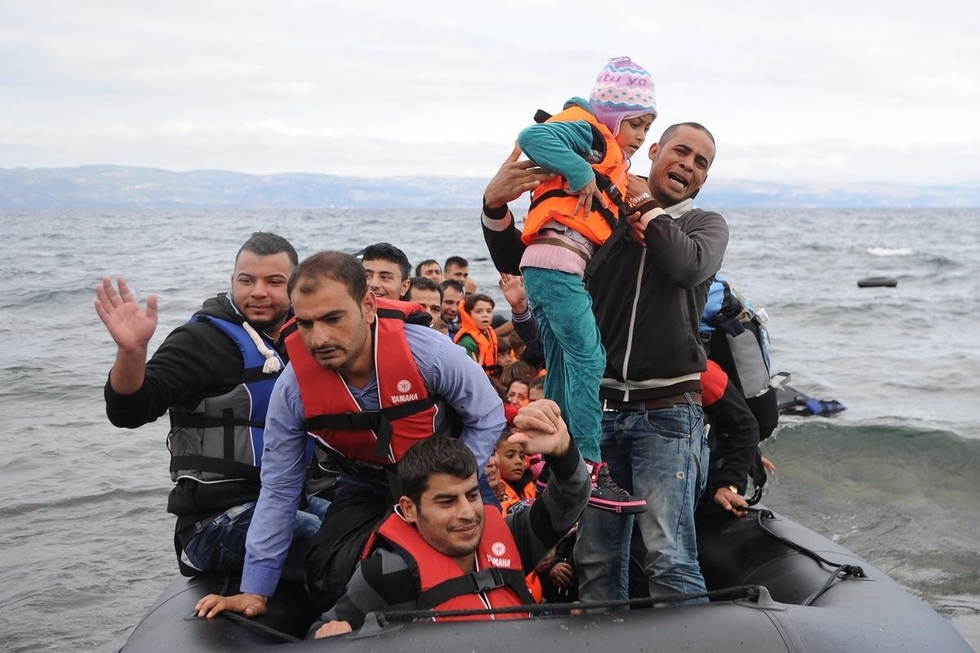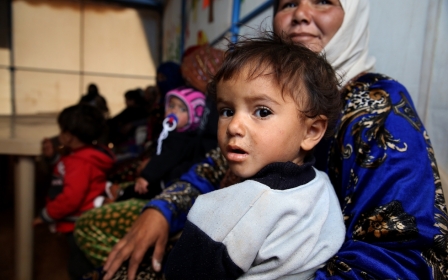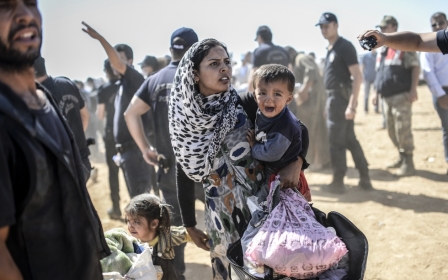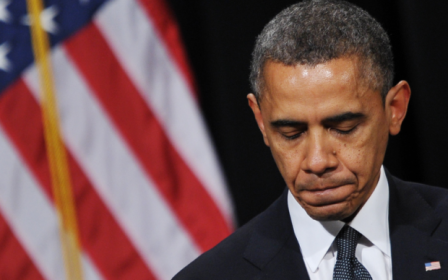Canada to exclude single men from Syria refugee resettlement plan: Report

TORONTO, Canada – The government plans to limit its intake of Syrian refugees to women, children and families, Canada’s public broadcaster has revealed.
The government’s resettlement plan will exclude unaccompanied Syrian men seeking asylum in Canada due to “ongoing concerns around security,” unnamed sources told CBC News on Sunday.
Canada’s newly-elected Prime Minister Justin Trudeau has pledged to bring in 25,000 Syrian refugees before the end of the year. The government’s full plan is set to be unveiled on Tuesday.
“It’s a compromise. It’s not perfect,” said Faisal Alazem, head of the Syrian Canadian Council, about the decision to leave unaccompanied Syrian men out of the resettlement process.
“I think they really want to resettle 25,000 [refugees] but they want to do it in a way to decrease not only criticism from the opponents of their plan, but calm down the voices that are shouting security threats, Syrian refugees, danger, etc.”
A Forum Research poll conducted last week showed that just over half of all Canadians (51 percent) said they disapproved of the government’s refugee plan. Forty-one percent approved while nine percent had no opinion.
Security concerns around the government’s plan increased following the deadly attacks in Paris on 13 November, with some questioning whether Canada would be able to properly vet the refugees within the prescribed timeframe.
Some leaders have linked Syrian refugees and terrorism, Azem said, and this is being used to “make the refugees pay a price”.
“For us, our position is (that) every single person that is vulnerable and is going to experience this very tough winter – whether it’s in Lebanon, Jordan, Turkey or even in Iraq – requires our protection,” Azem said.
A few days after the attacks in the French capital, Saskatchewan Premier Brad Wall urged Trudeau to “suspend” his refugee plan. The mayor of Quebec City, Regis Labeaume, said the city would rather take in Syrian orphans and families, not “frustrated, 20-year-old guys”.
But Ottawa has held firm, assuring Canadians that appropriate security steps will be taken.
“We have a cabinet committee that is leaning in directly on these issues of how to do what Canadians expect Canada to do, which is welcome in refugees fleeing a terrible, terrible conflict in Syria but to do so in a way that keeps Canadians and their communities safe,” Trudeau said at the recent G20 summit in Turkey.
Details on the government’s plan have been sparse so far.
Political talk show Everything is Political reported on 12 November that Ottawa was looking into flying 1,000 refugees out of Amman, Jordan per day to meet its year-end deadline. CBC reported that Canadian officials have screened 100 refugees per day in Lebanon over the last six weeks, in addition to those being vetted by the UN refugee agency.
UNHCR hailed Canada’s commitment as “a huge gesture of solidarity with the Syrian people and the country neighbouring Syria,” which are hosting most of the refugees.
“I urge other countries to follow Canada's lead, galvanise their resources, and dramatically increase the number of Syrians who are able to rebuild their lives in safe countries without having to take perilous journeys,” said UN High Commissioner for Refugees Antonio Guterres in a statement.
The bulk of the refugees set to come to Canada – about 16,000 – will be resettled in Ontario and Quebec. Many will be initially housed on Canadian military bases, but the majority is expected to end up in the Montreal and Toronto areas.
The plan will cost Canada an estimated $1.2 billion over six years, The Canadian Press reported last week.
Azem said that despite having some reservations, the Syrian-Canadian community is largely “very appreciative that the government is stepping up and doing something historical”.
“This is a very dramatic shift to what the previous government has done,” he said, adding that only about 2,500 Syrian refugees had been resettled in Canada since the uprising began almost five years ago.
“It’s quite the effort and it’s very honourable and it’s something that will not go unnoticed, not only in Canada but around the world.”
Middle East Eye propose une couverture et une analyse indépendantes et incomparables du Moyen-Orient, de l’Afrique du Nord et d’autres régions du monde. Pour en savoir plus sur la reprise de ce contenu et les frais qui s’appliquent, veuillez remplir ce formulaire [en anglais]. Pour en savoir plus sur MEE, cliquez ici [en anglais].




